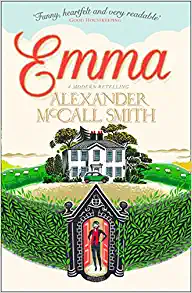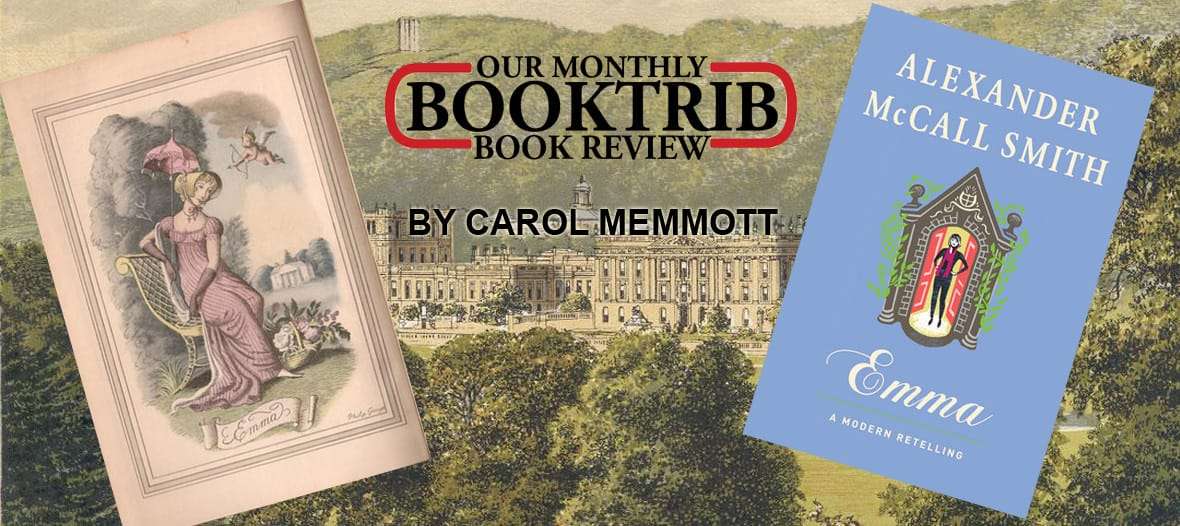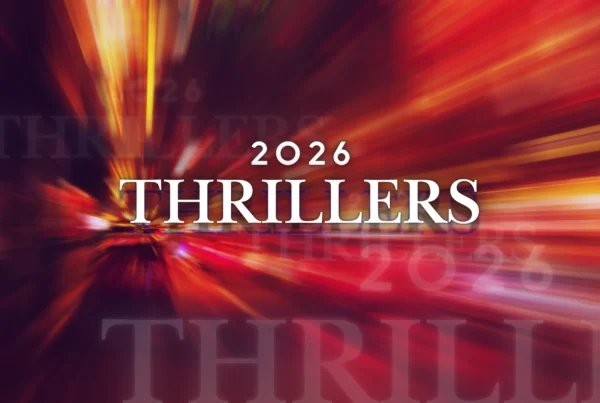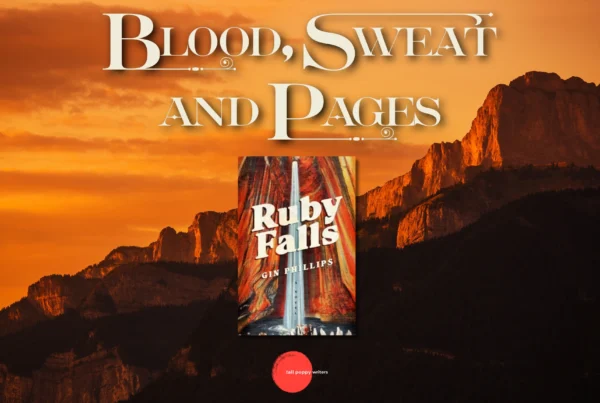Emma: A Modern Retelling by Alexander McCall Smith
In her lifetime, Jane Austen gained neither great fame nor fortune from novels that today are considered some of the best in the world. This year marks 200 years since the publication of Austen’s “Emma,” the story of a well-meaning but misguided matchmaker who makes more mischief than marriages. Modern times demand modern celebrations, so what better way to honor this literary jewel than with a charming reimagining of Emma Woodhouse’s story, set in the 21st century.
Scottish writer Alexander McCall Smith, beloved for creating irresistible female characters including Mma Ramotswe of the No. 1 Ladies’ Detective Agency, offers, for our edification, the delicious Emma: A Modern Retelling (Pantheon, April 7, 2015). Some Janeites may consider such an endeavor an abomination, but come with an open mind. You’ll love this new millennium story and delight in the modern constructs.
McCall Smith is not the first to be inspired by the Austen canon. Pop culture’s fanatical obsession with the Regency-era British author’s works has produced an abundance of tribute novels written as prequels, sequels and newly imagined tales including the quirky Pride and Prejudice and Zombies. Helen Fielding’s Bridget Jones’s Diary was inspired by Austen and her work also has influenced numerous films including the Bollywood-style Bride and Prejudice. All that’s left, it seems, is setting her famous novels in modern times. That’s where the ongoing Austen Project comes in.
Notable authors who have gained our approbation—a word used more frequently in Austen’s time than now—are transporting beloved characters through time and into our modern world. Joanna Trollope has written a new Sense and Sensibility, Val McDermid has published her interpretation of Northanger Abbey and Prep author Curtis Sitttenfeld’s 21st century retelling of the Bennet sisters’ story in her version of Pride and Prejudice is in the works.
In his Emma, McCall Smith never wavers from Austen’s Regency tone—in fact, the unpracticed eye can’t even tell the difference. The contrasts between the two Emmas certainly aren’t subtle, but they never feel jarring or awkward.
Like the Emma of old, new Emma lives with her anxious father—whom whom she calls “Pops”—at their Hartfield estate in the village of Highbury. Unlike her 19th century counterpart, modern Emma has a university degree in interior design and one day hopes to open a consulting business.
McCall Smith has modern society’s permission to be a little more risqué in his version. Emma’s 19th-century sketchbook has a returning role in the new tale, although now it’s parked next to the laptop on Emma’s desk. In a memorable scene in the original, Emma sketches a portrait of Harriet Smith whom she hopes to match with the local vicar, but this time Harriet agrees to do the first sitting in the nude. Harriet is so lovely that Emma questions her own sexuality. McCall Smith keeps all of Austen’s ironic humor but adds a bit of his own. In one scene Emma observes that Harriet Smith is a very old-fashioned name.
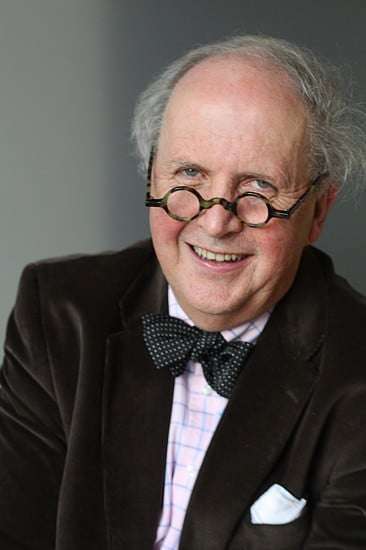
Alexander McCall Smith
Emma, tooling around Highbury in her Mini Cooper, sipping cappuccino at the local coffee shop with her smart phone at hand, just feels right. McCall Smith gracefully embeds modernity in a 200-year-old story of snobbery and romance that has never gone out of fashion. Employing a romance novel trope that never grows old, Emma, who swears never to marry, needs to have her eyes opened to the man of her dreams only after another woman sets her sights on him.
As the story evolves, in the original and the retelling, so does the snobbish Emma. New Emma learns from the Land Rover-driving George Knightley some universal and timeless truths that are as important today as they were in 1815: that all people deserve kindness and that empathy is a virtue worth more than a sprawling estate on the English countryside.
Fans of Austen should not pass up this opportunity to spend more time with Emma. I enjoyed it so much that I re-read the original and then binge-watched the BBC’s wonderful 2009 four-part series starring Ramola Garai and Jonny Lee Miller. Like the box of violet creams Emma gives to her friend Miss Bates, all things ”Emma,” when lovingly created, are irresistibly sweet and delicious.
Buy this Book!
Amazon